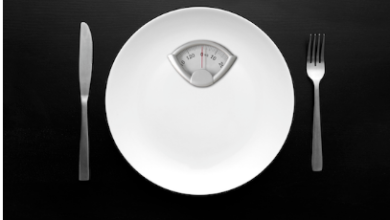
Watermelon, with its luscious pink flesh and refreshing taste, is a quintessential summer delight. However, it’s not just about quenching your thirst on a scorching day. This article delves deep into the world of watermelon, exploring its nutrition facts and the myriad health benefits it brings to the table. From vitamins to antioxidants, watermelon is more than just a delicious treat.
The Sweet Science Behind Watermelon
Watermelon, scientifically known as Citrullus lanatus, is a member of the Cucurbitaceae family. It’s primarily composed of water, giving it its hydrating and thirst-quenching properties.
Nutritional Composition
Let’s break down the nutritional profile of watermelon:
Calories and Macronutrients
Watermelon is a low-calorie fruit, making it an excellent choice for those looking to shed a few pounds. It contains minimal fats and proteins but is rich in carbohydrates, particularly natural sugars.
Vitamins and Minerals
Watermelon is a good source of several essential vitamins and minerals:
Vitamin C
Vitamin C is known for its immune-boosting properties. Watermelon provides a generous dose of this vitamin, contributing to your overall health.
Vitamin A
Vitamin A is essential for maintaining healthy skin, vision, and the immune system. Watermelon contains beta-carotene, a precursor to vitamin A.
Potassium
Potassium helps regulate blood pressure and plays a role in heart health. Watermelon contains a significant amount of potassium.
Antioxidants
Watermelon is packed with antioxidants like lycopene, which is responsible for its vibrant color. Lycopene has been linked to numerous health benefits, including reduced risk of chronic diseases.
Health Benefits of Watermelon
Watermelon’s high water content makes it a perfect choice for staying hydrated during hot summer months. It helps prevent dehydration and keeps your body functioning optimally.
Weight Management
Low in calories and fat, watermelon can be a part of a weight-conscious diet. The natural sugars provide a sweet fix without overindulging.
Skin and Hair Health
Vitamins A and C in watermelon contribute to healthy, radiant skin and strong hair. They are essential for collagen production and skin repair.
Heart Health
The potassium in watermelon is beneficial for heart health, helping control blood pressure. Additionally, the presence of lycopene may reduce the risk of heart diseases.
Antioxidant Protection
Lycopene, a powerful antioxidant found in watermelon, helps protect your cells from damage caused by free radicals. This may reduce the risk of chronic diseases, including cancer.
Study Suggests Walking 7,500 Steps Daily Reduces Risk of Post-Operative Complications
How to Enjoy Watermelon
The classic way to enjoy melon is by cutting it into bite-sized chunks or slices. You can refrigerate it for a refreshing, chilled treat.
Smoothies
melon can be blended into smoothies along with other fruits and yogurt for a delicious, nutritious drink.
Salads
Add melon cubes to your salads for a burst of flavor and hydration. It pairs exceptionally well with feta cheese and mint.
Frozen Treats
Freeze melon slices for a guilt-free popsicle alternative. Kids and adults alike will love this cooling dessert.
Conclusion
melon isn’t just a delicious fruit; it’s a nutritional powerhouse. Packed with vitamins, minerals, and antioxidants, it offers a wide range of health benefits. From promoting hydration to supporting heart health and beautiful skin, this juicy delight deserves a special place on your plate. So, the next time you bite into a juicy slice of watermelon, relish it not only for its taste but also for the treasure trove of health benefits it provides.
FAQs
1. Is watermelon suitable for a weight loss diet?
Absolutely! Watermelon is low in calories and fats, making it an excellent choice for those looking to shed some extra pounds.
2. How does watermelon benefit skin and hair health?
Watermelon is rich in vitamins A and C, which are essential for collagen production, skin repair, and maintaining strong, healthy hair.
3. What is lycopene, and why is it important?
Lycopene is a powerful antioxidant found in watermelon. It helps protect your cells from free radical damage and has been linked to a reduced risk of chronic diseases, including cancer.
4. Can I freeze watermelon for a refreshing summer treat?
Yes, you can freeze watermelon slices for a delightful and guilt-free frozen treat. It’s perfect for staying cool on hot days.
5. How can I incorporate watermelon into my diet besides eating it plain?
You can enjoy watermelon in various ways, such as adding it to salads, making smoothies, or using it in frozen treats. The possibilities are endless!




